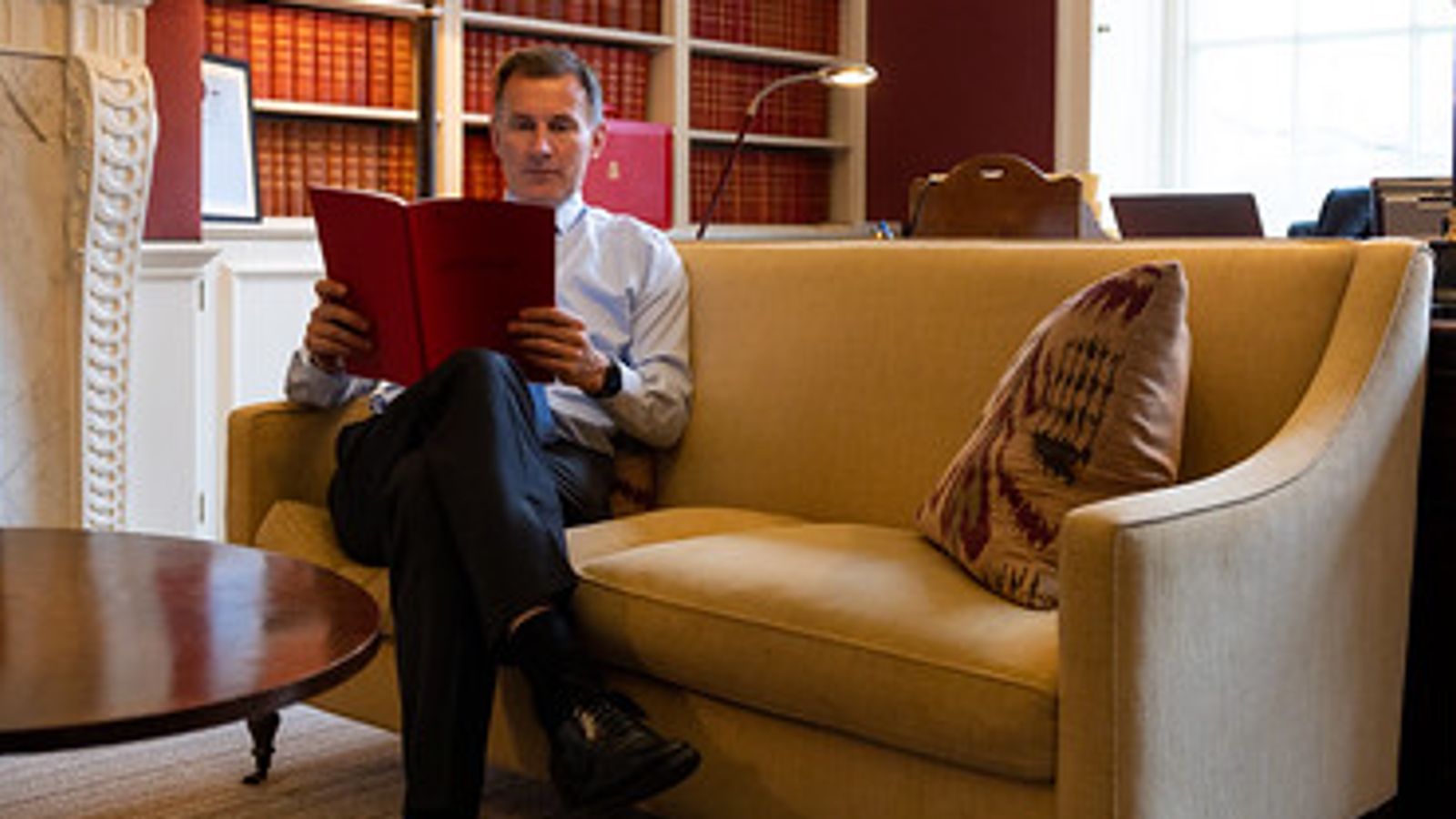Budget 2023: Chancellor to promise 30 hours of childcare a week for one and two-year-olds

The chancellor will promise to provide 30 hours of childcare a week to parents of one and two-year-olds, Sky News has learned.
The announcement is set to be made in tomorrow’s Budget.
Families with children aged one and two do not currently receive support to cover the period after parental leave ends and before free nursery hours are offered for three and four-year-olds.
Extending the provision could form a central plank in Jeremy Hunt’s pitch of helping with the cost of living and getting parents into work, according to Sky News’ political editor Beth Rigby.
UK childcare costs are among the most expensive in the world, with full-time fees for a child under two at nursery reaching an average of £269 a week last year – equivalent to around £14,000 annually.
Last month, the Early Years Alliance told Sky News nursery fees are expected to increase even further, going up by an average of 8% – higher than in previous years.
Tory MPs have been pressing the chancellor to make childcare more affordable in the March budget to reduce pressure on families and enable more women to re-enter the workforce.
The chancellor is also expected to change the rules so that people on Universal Credit are given more childcare and provided with the funding upfront as part of a package of measures to help parents.
On top of this, the Treasury is believed to be planning a cash injection of hundreds of millions into increasing the availability of the 30 hours of free childcare to three to four-year-olds.
Advertisement
And the chancellor also plans to loosen staff to child ratios for two-year-olds, which could make the cost of childcare a little cheaper.
Childcare has emerged as a key political battleground in the runup to the next election.
Click to subscribe to the Sky News Daily wherever you get your podcasts
Few other “big bangs” are expected tomorrow, with Mr Hunt likely to focus on measures to support the government’s plan to halve inflation, grow the economy and reduce public debt.
The fiscal package comes in the wake of the autumn statement last November, which saw the chancellor hike taxes as he and prime minister Rishi Sunak sought to restore UK financial credibility after Liz Truss’ short-lived premiership.
Government insiders said there will be two parts to the budget: a short-term support plan to provide immediate relief on the cost of living crisis and then the long-term plan for growth.
Read More:
Jeremy Hunt is set to deliver his first budget – here are the things to look out for
On the cost of living, Mr Hunt is expected to cancel the planned £500 hike in the government’s ceiling for energy bill support which was due to come into force next month.
However he is not expected to offer voters any cuts to personal taxes.
Efforts to encourage the over-50s, the long-term sick and disabled, and benefits claimants back into the workplace are likely to form a key plank of the budget, while the chancellor is also said to be mulling over changes to pensions to entice early retirees back to work.